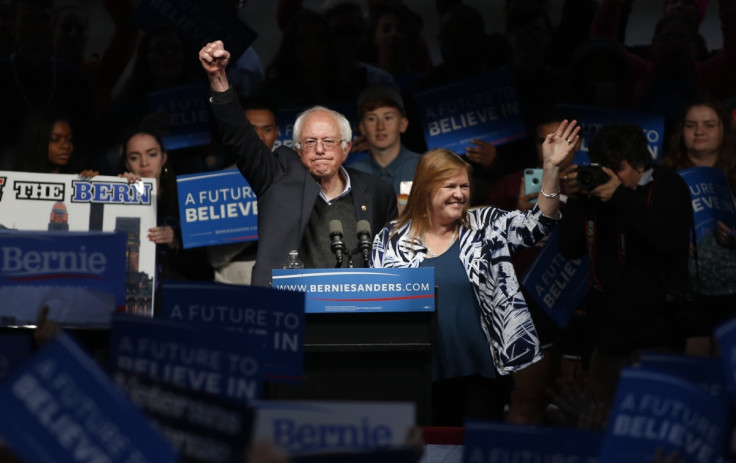Indiana primary results: Bernie Sanders and Donald Trump claim victory in the Hoosier State

The 3 May primaries in Indiana were nothing if not surprising. Republican frontrunner Donald Trump nabbed a key victory in the Hoosier State, prompting rival Ted Cruz to officially suspend his campaign. Meanwhile, Democrat Bernie Sanders pulled off an unexpected win over frontrunner Hillary Clinton, who led in the polls prior to the race.
Republicans
Billionaire real estate magnate Donald Trump easily snatched a win in Indiana and was declared the victor at 7pm EDT/12am BST as the final polling stations closed. The win pushed him even further ahead in delegate counts, surging past the 1,000 mark at 1,047.
With 95% reporting, Trump earned at least 51 of the state's 57 delegates. His victory also caused his lead rival to drop out of the race—a move few saw coming.
Cruz's decision to leave the GOP race has cleared Trump's path to become the party's nominee. Less than an hour after announcing his decision, Republican Party chairman Reince Priebus called on the party to rally behind Trump to defeat likely Democrat nominee Hillary Clinton.
Democrats
Democrats also experienced a surprising night when Vermont Senator Sanders pulled off an unforeseen win over Clinton at 9.23pm EDT/2.23am BST. Clinton initially led when the first round of primary voting station closed at 6pm EDT/11pm BST, but matters quickly changed an hour later as the final polling stations closed. With 96% reporting, Sanders won with a five point lead, 52.5% to 47.5%.
However, Sanders' 18th victory this primary season did little to close the delegates gap between the two candidates. Prior to the Hoosier State primary, Clinton led with 2,165 delegates to Sanders' 1,357. Following the primary, Sanders won 43 of the state's 83 delegates and Clinton took home 37. The outstanding three delegates were not yet allocated at the time of publishing.
Clinton is now merely 181 delegates away from clinching the party's nomination with 2,202 delegates. Meanwhile, Sanders is 983 delegates away from the nomination with 1,400. Democrats need 2,383 for the nomination and 1,163 delegates remain available.
The remaining four candidates will face off again on 10 May. Democrats will battle it out in West Virginia where there are 29 delegates up for grabs. Republicans will also face off in West Virginia for the chance at 34 delegates, and in Nebraska for another 36 delegates.
© Copyright IBTimes 2025. All rights reserved.






















